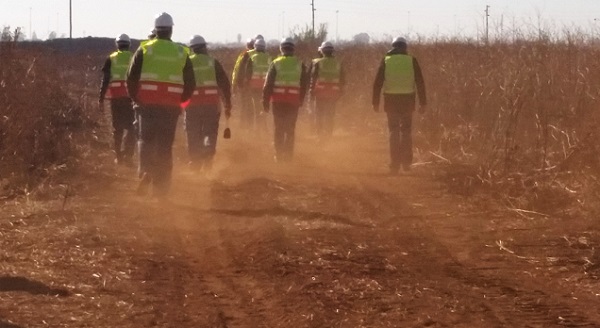
Any learned volunteers to go work a full year on a farm?

By Geni Dee
I have a suggestion: Graduate Engineers need to do a community service year before entering the workforce. This would be like the doctors’ community service year, however the engineers would be expected to work on a farm.
Now before you crucify me, hear me out…
The idea would be to let them fix the boundary posts, rebuild the dam walls, design and construct chicken coops, build a gate at the kraal, fix the leak in the roof, lay irrigation piping and pumps, fix broken pumps, milk the cows, etc. The list is endless. Work on a farm never stops.
Housing and transport will be free and all food will be provided for. They will be paid a minimum wage for their hard labour.
So why am I offering Engineers on a silver platter to provide basically free labour?
Being one myself, I have seen the practical solutions and problem solving needed on the farm, relate back to my own work.
On the farm, it isn’t just a quick drive to the shop to buy everything you need. You never throw away anything that broke because it might be used to fix something else. And there is nothing that you can not fix with a strip of tube.
This has made me more aware of finding practical solutions and made me realise that sometimes designs can be simplified, which in turn has had major cost-saving implications on projects.
Engineers already have knowledge of the basics, and the introduction of such a community year would allow them to put their degree to a very relevant real-world use.
The idea is to start with engineers, because the positive effects would be almost immediate once they start working. They will produce more cost-efficient and practical designs. They will have gained valuable hands-on experience. The graduates will have discipline and respect (something which all millennials lack according to the older generation).
Once you have seen something in practice it tends to make you think about how things are put together. Many young engineers have difficulty relating the lines on drawings to the final constructed product. As a bonus the graduates will also be exposed to the management of a farm which in essence is a business that has to make a profit. Farming in not glamorous, it is hard work and it is 365 days of the year.
It might seem harsh and hard work, but it will also help them to build character.
This idea isn’t so far-fetched when you consider what the UK Engineering firm, INEOS puts their graduates through. Every year the company sends its graduates to Namibia to do an endurance course which pushes the body and mind to the limit. The graduates have to complete a marathon distance run in the desert, do 80 km of mountain biking and complete mountain climbing (with a 20 kg backpack) all in a period of 7 days.
Compared to that, working on a farm seems like a piece of cake. From there on the programme can be developed to allow engineers who have undergone the community service to teach others what they have learned. It will be on a volunteer basis, but it will be open to anyone who wants to learn how to work a farm. No degree needed. It will be a kind of Pay-It–Forward movement.
We have a large amount of unemployed/unskilled youths who are demanding their own farming land. We have people with the knowledge but who have put every fibre of their being into their farm land and are not just willing to give it away. This community year could be the first step in bringing those groups of people together for the greater good of the country.
So do I have any volunteers who would be willing to offer their farm as the training camp? Granted I haven’t thought of all the logistics, but I’m happy to put down my thoughts in a proper proposal. This might just be the start of solving some of Namibia’s issues. Maybe I can share this with the President, if only someone can put me in touch with him.












































